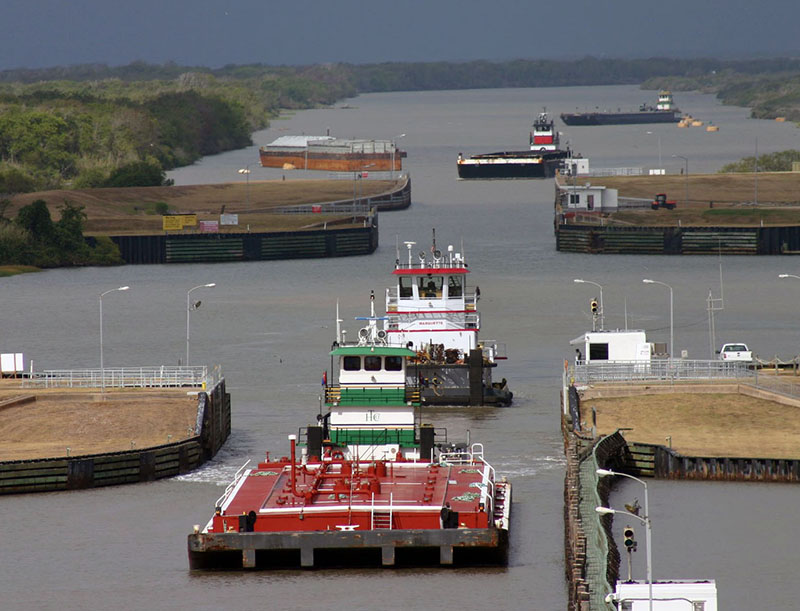As part of its evolving effort to keep the barge industry informed about how best to respond to the coronavirus pandemic, the American Waterways Operators held a webinar on Tuesday to discuss best ways to protect crews and vessels from infection.
AWO members had the chance to ask questions to Dr. Christopher Kuhlman, a board-certified toxicologist and industrial hygienist. Kuhlman works at the Center for Toxicology and Environmental Health, which helps companies prepare for, respond to and recover from environmental threats. He has been working recently with maritime employers on their Covid-19 responses, including developing cleaning and disinfecting protocols and disinfection oversight of the Diamond Princess cruise ship in Japan.
Kuhlman reviewed the current data and information circulating about the coronavirus, such as screening protocols that include taking temperatures of workers, evaluating the symptoms of fever, cough, shortness of breath, and when necessary quarantining those suspected of being infected.
Here are some highlights of his recommendations for vessel owners and mariners:
- Avoid sharing items in the galley, restrooms and sleeping areas.
- If a room of an infected person is left vacant for four-five days, this should be enough time for the virus to die, but there is a potential for an inactive virus. The Center for Disease Control said the virus’s RNA (genetic material) was detected up to 17 days after cabins on the Diamond Princess were vacated.
- Limit the number of people eating in the galley.
- When disinfecting, pay attention to high-touch surfaces, and open windows to allow the area to dry out. Heat could be effective, but this takes longer.
- Isolate people that are symptomatic immediately and have them wear a surgical mask.
- In the engine room and around electronics, it’s best to use disinfectants that can be fogged or misted. Don’t spray electronics as they will get wet, better to use a cloth with the disinfectant sprayed on it.
- Implement proactive, constant cleaning.
- It’s not necessary to wear personal protective equipment (PPE) if proactive cleaning is being done, but in a room where an infected person has been, using PPE is advised as well as decontaminating the protective equipment after.
- There is no evidence that the virus spreads through air conditioning ducts or filtration systems so it’s unlikely these would need to be cleaned.
- There are advantages in hiring a third-party to handle disinfection of a vessel as these workers will have the training and experience in disinfection procedures. A decision on this would depend on the size and type of vessel.
- Looking ahead, it’s likely that more companies in many sectors will beef up their industrial hygiene plans, work at home plans and develop operational continuity plans to make sure that business can continue in a safe manner during similar emergencies.
A recording of the webinar will soon be available on the Covid-19 page on the AWO website. The page is updated daily and most recently added resources shared by AWO members including samples of company protocols on pre-boarding screenings, medical evaluations, transmission prevention and essential personnel travel authorizations.
The barge industry is well versed in developing safety procedures and building strong cultures of safety and environmental leadership, Brian Bailey, AWO’s director of safety and environmental stewardship, said at the beginning of the webcast.
“Those years of preparation and training are proving critical to our industry’s ability to stay the course, and our success in keeping critical commodities moving directly bears on our nation’s ability to weather this crisis.”




